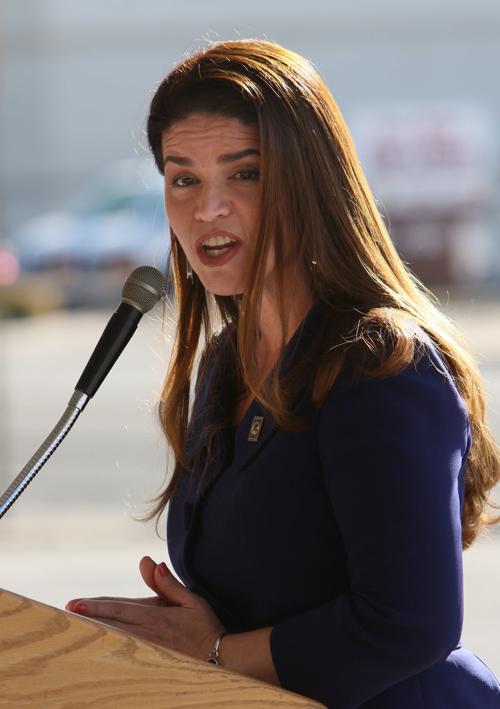The Tucson City Council voted Wednesday to oppose controversial state legislation that would seek voter approval to enshrine an Arizona-wide ban on so-called “sanctuary cities” in the state Constitution.
In a prepared statement, Tucson Mayor Regina Romero said “there is zero need” for Senate Concurrent Resolution 1007 and House Concurrent Resolution 2036. The former passed out committee last week, while the latter bill is scheduled for a hearing Friday.
“This ballot referral is 100% politically motivated to bring out a voting bloc that the governing majority at the State Capitol believes they need to be successful in 2020,” she said. “No amount of electoral success is worth the division that will be sewn throughout our communities if this initiative makes the ballot. I strongly urge the governor and state Legislature to reconsider this effort before they cause irreparable harm to communities throughout our state.”
The Republican-led Legislature, with the support of Gov. Doug Ducey, has already taken the first steps to pass the legislation for a constitutional ban on sanctuary cities, or jurisdictions that limit their cooperation with federal immigration authorities.
The state already has an existing ban on sanctuary cities, implemented in 2011 with the passage of SB 1070, the controversial anti-immigration law.
While no local jurisdictions in Arizona meet the definition of a sanctuary city, and the city of Tucson overwhelmingly rejected a ballot proposition to become one in November, law enforcement agencies in Tucson have adopted so-called “immigrant-friendly policies.”
Pima County Sheriff Mark Napier announced last July that the department would not engage in “proactive enforcement of federal immigration laws,” including asking for citizenship documentation when interviewing victims of crime, although they do call federal law enforcement when coming into contact with somebody without documentation.
Those efforts are similar at the Tucson Police Department, which enacted an immigration policy in the wake of SB 1070. TPD’s policy has been updated several times, but still prohibits immigration status as a reason for a traffic stop, and also states that witnesses and victims of crimes should not be asked about their immigration status, among other policies.
Romero, who opposed the sanctuary city policy, said Tucsonans struck it down “primarily out of fear of retaliation by the state Legislature.
“Using the results of that election as a justification to call for a statewide ban is deceitful and disingenuous to the intentions of the voters of Tucson, who have a history of welcoming persons of all backgrounds — regardless of status,” she said.
The Trump administration has ramped up efforts to target sanctuary cities, announcing last week new lawsuits against municipalities in New Jersey and Washington. Representatives from Arizona’s U.S. Attorney’s Office said last week there are no immediate plans for changes to local practices, but affirmed their stance against immigration policies that might circumvent federal laws.
In her statement, Romero called the state’s proposal “Trumpian” and “an entirely unnecessary escalation of SB 1070.”
“To double down on SB 1070 a decade after we’ve begun to turn the page of this dark chapter in Arizona history would be a grave mistake,” she said.





